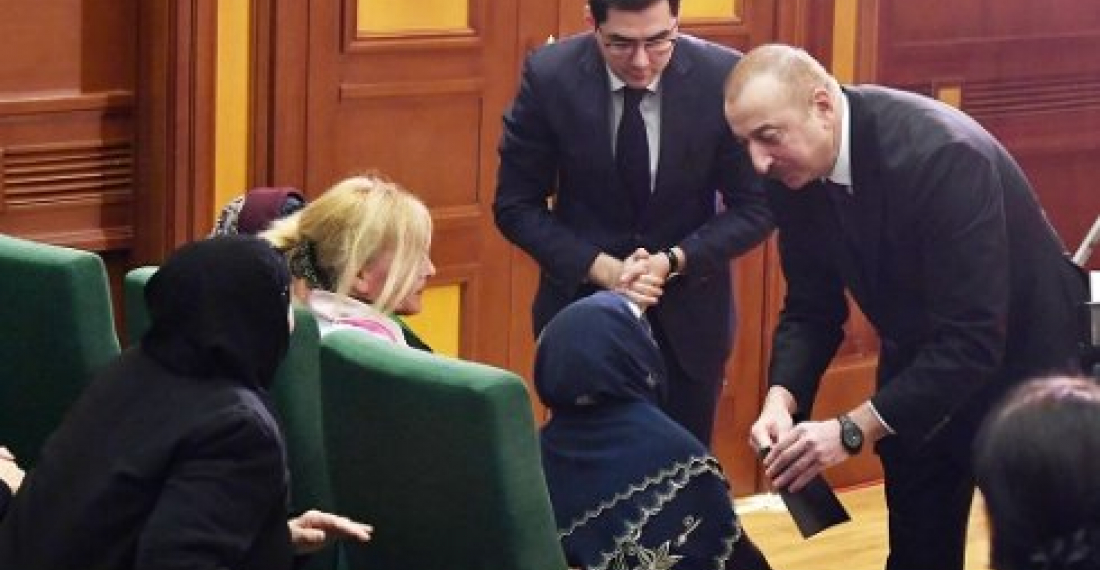Azerbaijani president Ilham Aliyev on Monday (28 January) met with relatives of soldiers who had died in combat. Mothers, wives, grandparents and other relatives were greeted by the Azerbaijani president who expressed his respect to them. The president in a speech outlined government policy towards the families of soldiers fallen in combat.
Aliyev also spoke of the ongoing conflict with Armenia, saying political, economic and military power was necessary to win this conflict. But he also sounded a conciliatory note. "We want a peaceful resolution of the conflict. We do not want martyrs, we do not want young people to become martyrs", he told those assembled.
The president had previously authorised a limp-sum payment to the relatives of fallen soldiers, and the government has also provided new apartments to hundreds of families.
Several of those present also spoke during the meeting.
source: commonspace.eu with agencies
photo: President Ilham Aliyev talking to the mother of one of the soldiers who died in combat, during a special ceremony in Baku on 29 January 2019. (picture courtesy of the press service of the president of Azerbaijan.






